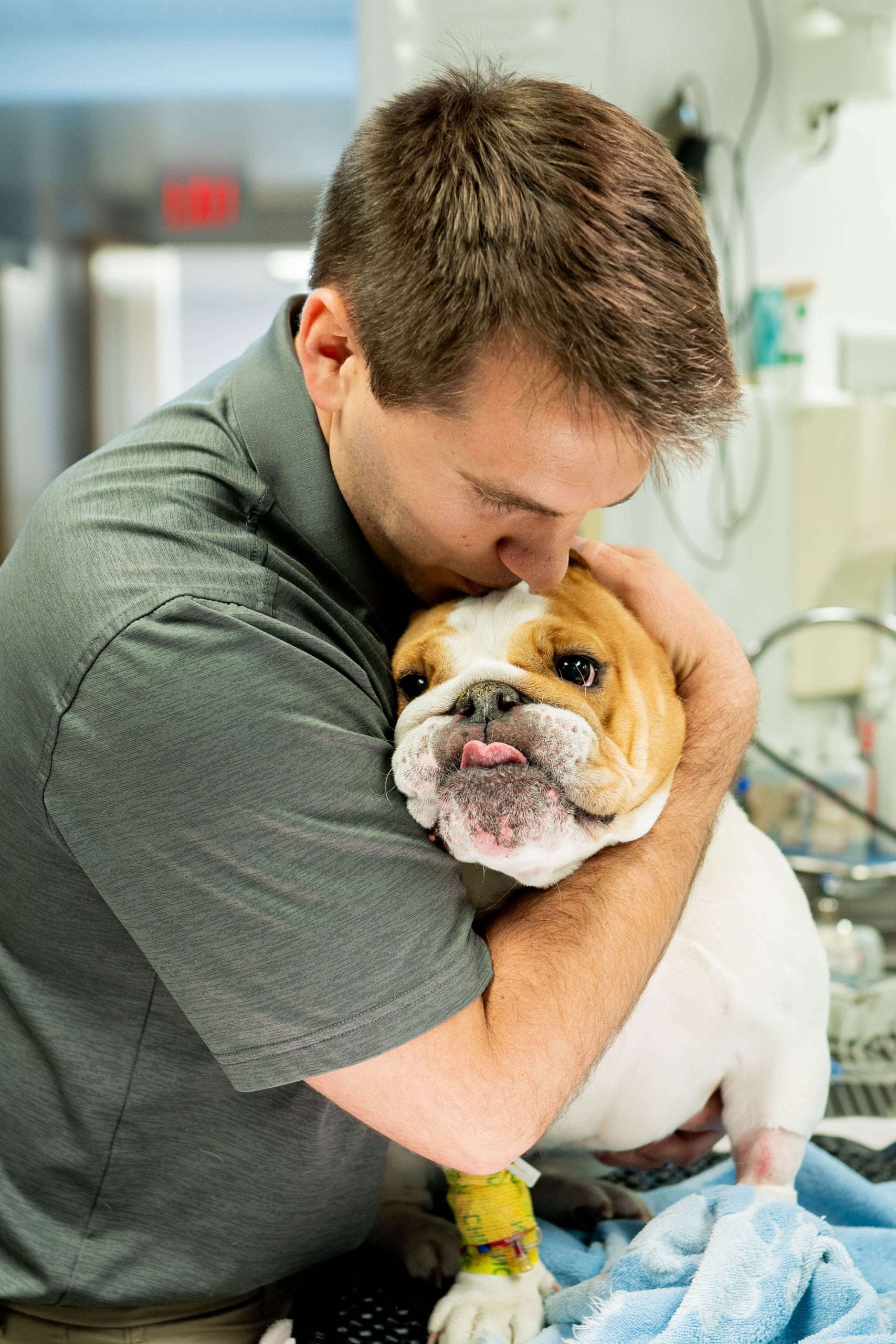Just like people, your pet’s stomach can become upset from time to time. One minute they can be perfectly fine, and the next they can be vomiting for seemingly no reason. Though it is a very common illness, symptoms of GI upset, such as vomiting and diarrhea, need to be taken seriously. They could be precursors or symptoms of something worse.
One minute they can be perfectly fine, and the next they can be vomiting for seemingly no reason. Though it is a very common illness, symptoms of GI upset, such as vomiting and diarrhea, need to be taken seriously. They could be precursors or symptoms of something worse.
Symptoms of GI upset
The most common symptoms of GI upset can be very similar to symptoms seen in humans. Your pet’s stool may seem soft, or they may even have diarrhea. In some cases, the diarrhea may be uncontrollable, and painful for them. You may even see blood in their stool.
More often than not, your pet will vomit when their tummies are upset. They may take time to eat grass during their walks in an attempt to induce vomiting. Pay close attention to their vomit, as you may find the answer to their tummy trouble in it. Take note if it looks as if they have eaten something that they shouldn’t have, such as food from a garbage can, another pet’s food, or even bit of toy or other foreign objects. If you notice that they have eaten a foreign object, it is important that you call your veterinarian immediately.
What to do?
Once you notice that your pet may be experiencing some kind of GI upset, the first step to resolving it is to make an appointment with your veterinarian. It is important to have your veterinarian examine your pet to ensure that they are simply experiencing a tummy upset and not something much more serious, as behaviors such as vomiting and diarrhea can also be symptoms of something worse.
The next step would be to examine your pet’s environment. Has anything changed recently, such as the kind of food they are eating? Is it possible that they could have gotten into anything that they shouldn’t have, such as cleaners, garbage, or another pet’s food? Noting these things could help your veterinarian find the source of your pet’s tummy upset.
After scheduling your pet’s appointment, in the mean time it may benefit you and your pet to feed them a bland diet. A bland diet may consist of plain white rice, and boiled chicken. This will help to settle your pet’s stomach. At our hospital, we carry diets specifically formulated for sensitive stomachs and GI upset. These are ideal for use during tummy upset, and are available for purchase.
Internal Parasites
One common cause of GI upset is the presence of internal parasites. Things like roundworms, hookworms, and tapeworms can cause vomiting, diarrhea, and bloody stool. Internal parasites can be passed through contact with or consumption of an infected animal’s stool, grooming an infected pet, or coming into contact with infected soil or water. The easiest way to tell if your pet’s tummy upset is being caused by internal parasites is by bringing a stool sample to your veterinary office to be sent off for testing. Fecal tests are very routine, and it is recommended that they are done once a year.
Chronic GI Upset
If you find that your pet constantly has tummy trouble, such as vomiting, soft stool, or diarrhea, we recommend discussing it with your veterinarian. There are many different causes of chronic GI upset, such as a food allergy or intolerance. Many pets have been found to be allergic to various forms of protein and intolerant to gluten. According to Dr. Patterson, “Poultry bi-product and beef are usually your top two,” but he also notes that different pets can be allergic or intolerant to a variety of proteins. Your veterinarian may suggest a diet trial to find a diet that is right for your pet.
Puppies and GI Upset
Puppies will often experience GI upset, which can have a variety of causes. Curious puppies tend to get into things that they shouldn’t, and may also have a rough time getting acclimated to foods that they are not used to or inconsistencies with their feeding. However, puppies are also at risk for contracting the canine parvovirus. Parvovirus is a terrible wasting disease that is very contagious and often fatal. It is important to keep your pet on a strict vaccination schedule, as one of the first and most important vaccinations that they receive protects them from parvovirus. The vaccination is given in a series of boosters three weeks apart, and finishes with a booster that protects your pet for one year. After a year, your pet should be given a vaccination good for three years. Be sure to always update this vaccination, as parvovirus does not discriminate. Always keep your pet protected. If you suspect that your puppy may be exhibiting symptoms of parvovirus, such as vomiting and diarrhea in conjustion before the DHPP vaccine boosters are all administered, call your veterinarian to make an appointment. They will most likely want you to bring your pet that day for a pravovirus test. To protect your other pets, keep the ill puppy isolated away from them until they are confirmed to be parvo-free. It is also important to protect the other pets at the hospital and in the waiting room, so we require that you leave your pet in your car when you check them in for their appointment or that you call our office from your car when you arrive for their appointment. To learn more about parvovirus, click here. For more information about core vaccines given at our hospital, click here.

